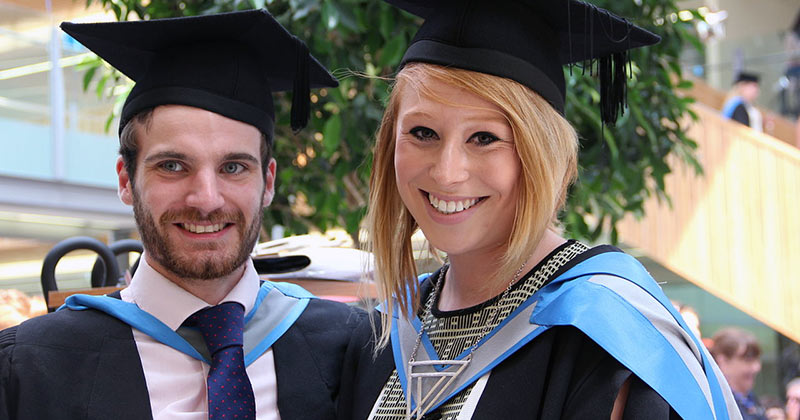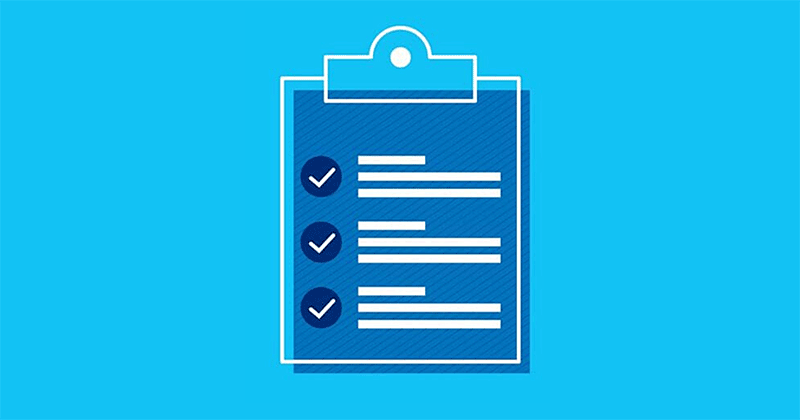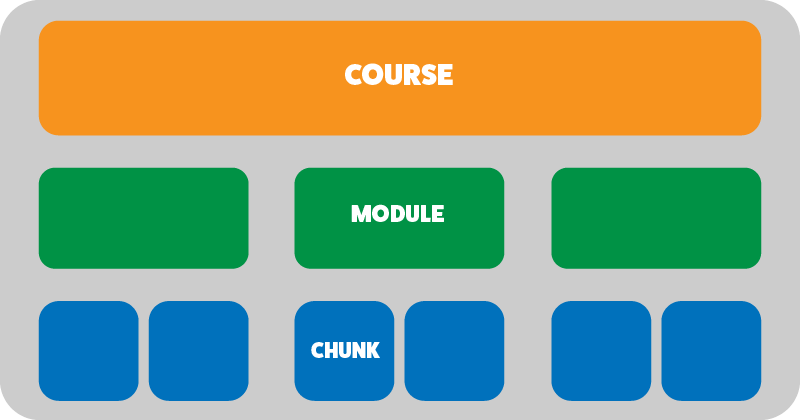The key to succeeding with your studies is to study smarter, not harder. Working harder by tapping into your willpower rarely works. Psychology studies have found that willpower is a finite resource that can be exhausted through use.
The secret to being a great student is to make study seem effortless. Set in place supporting structures and habits that allow you to get high grades without putting in many hours.
The good news is that a list of powerful techniques to help you study smarter, not harder, is presented right here. Many of the study strategies are backed by science.
The 21 tips were extracted from a large essay contest for college students. We asked entrants what most helped them to succeed at study. Then we searched through the essays to find the strongest, most repeatable study methods.
1. Set a Big-Picture Study Goal

To study smarter, set in place a big-picture goal. The objective needs to be something you find personally important and which, hopefully, is both realistic and exciting to you.
A goal is a source of energy and motivation, improving study efficiency and how well you retain information. The big-picture goal could relate to your family, future career, skill development or a personal accomplishment. Whatever the vision, think about it and believe in it.
A study of 311 college students reported in the Journal of Personality and Social Psychology found that grades were improved by both mastery goals (a desire to acquire knowledge) and performance goals (a desire to perform just as well or better than others).
2. Study Like It’s Your Job
Elevate study to the same status as a paid job. In a job situation, you need to get things done. Simple. Take the same attitude when you sit down for a study session. Show up, make a task list and check off each accomplishment one by one. You’re there to be productive and that’s all.
A professional approach may explain why college students who also work some part-time hours achieve higher grades. A study published in the International Journal of Business Administration found that students who worked less than 10 hours per week scored a higher GPA than those who didn’t work.
Treating study like a job can help you be more consistent, focused, and productive in your studies. Without even trying especially hard, this approach must lead to better grades and academic success.
3. Create a Study Plan

Create a study plan for yourself at the start of each term. Incorporate readings, assignments and topic reviews. Be specific about dates and milestones. And adjust the plan as needed as the term goes on.
Why does a study plan work? Having a plan keeps you on track, ensuring you do everything that’s required to get good grades. A clear roadmap is great for motivation because you can tick off accomplishments one by one. It’s also efficient. Time is allocated appropriately and large tasks are broken down into smaller, manageable chunks.
A hardcopy planner or journal may be quicker and more effective than an app. But how you produce the plan is up to you. It should be specific but also clear and easy to follow. Remember that complicated plans usually don’t work and are likely to be changed.
4. Create a Weekly Study Schedule
Create a study schedule and stick to it. A structured, firm schedule is the smart strategy to manage time. You can make sure you hit your study goals while avoiding stress.
Just draw up a weekly study schedule and follow it. The schedule should allocate enough hours for study while also leaving room for hobbies, social life and down time.
Intelligent people follow study schedules because this helps them prioritize tasks and use their time efficiently.
5. Have Dedicated Study Blocks
As part of your scheduling, set aside blocks of time each day to study without interruption. Everyone has a different time of day that works best for them, which could be first thing in the morning or late at night.
Find the time where you can consistently set aside a study block. Hold yourself accountable for studying well at this time each day. Studying during the dedicated blocks is non-negotiable.
You’ll benefit from putting in the effort. With an efficient burst, you’ll accomplish your academic goals. Then you’ll get genuine time off. Because your studied at the correct times, you can take a proper break and not worry about anything.
6. Study in a Quiet Space
Find a space in your home where you are free from noise and disturbances. This is the place where you will go to work and achieve your study goals.
Quietness allows for full focus, which reduces how many hours you actually have to put in. Choose a study space that is at the right temperature, has good lighting, and is set up in a way that is comfortable and conducive to your learning style.
Mention your need for quiet time with your family or roommates in advance. Tell them when you will be studying so they don’t disturb you.
7. Prevent Possible Distractions
Remove potential distractions to complete your best work. Turn off your mobile phone and the television while you study. Only use background music if it helps you to relax and focus.
Don’t try to multi-task because it’s inefficient. Stick to your studies only. If other things are on your mind, you’ll have to take care of them later. Switching between tasks imposes time and energy costs. If study fatigue is a problem, just take a break.
If you’re studying in a noisy environment, consider using noise-cancelling headphones to help block out distractions.
8. Limit Social Media Visits
Social media is a huge distraction when you study that can fritter precious time away. Log out of your apps and accounts and switch off alerts on your phone and laptop. Don’t be tempted to get sucked into Instagram or TikTok for example when you should be studying.
A study of 500 university students in Australia found that excessive use of social media, Facebook in this case, put lower achieving students at risk. As reported in Computers and Education, moving from 2 hours to 3 hours of Facebook a day was associated with a 6-point drop in test scores.
9. Make the Most of Online Resources
Use online resources to study efficiently. A little preparation can make sure you are quick at identifying what you need to do and start tasks with the right information.
Find out exactly how students are assessed and graded. Look at your college or university’s online library or writing centre for assistance with upcoming papers. Learn how to navigate around your classroom home tabs.
There’s nothing stupider when it comes to study than running around doing unnecessary or low value study. Get a clear picture of what needs to be accomplished and the tools available to you.
10. Break Down Work into Chunks

For maximum focus, break down your daily study load into smaller tasks. These chunks should each have a specific goal.
Try only to retain a small amount of information at a time, and don’t make your study sessions too long. After each short session, give yourself a small break to refresh your mind.
According to educational psychologist Richard Mayer, “People learn better when a complex continuous lesson is broken into separate segments.”
11. Stay Mentally Engaged
Techniques to stay mental engaged are really important. You only learn when your mind is switched on.
Attention is the first step in learning. We cannot understand, learn or remember that which we don’t first attend to.
Thorne and Thomas
Quiz yourself as you study to ensure you retain the information you are taking in. Say out loud what you’ve learned. If your mind wanders, watch the lecture again or re-read the chapter.
Active engagement is the mental process of extracting meaning from content. You make connections to lectures, forming intuitive examples, and regulate your own learning (Davis and Gray).
12. Take Notes While You Study
Write down key points when you study to help retain information and ensure your brain is focused and active. For a long video, for example, jot bullet points at regular intervals. Label each set of notes. To find the notes again in the future, you can just use the search function on your laptop.
The smart way to take notes is to do so only to the point of maximum effectiveness. Key benefits are to activate your mind, identify essential information, improve retention, and create a future review resource for use ahead of exams. Always try to write in your own words so that you’re forced to contemplate what you’re writing.
The danger is that note taking becomes an activity unto itself rather than a tool. Don’t waste time with writing when it slows learning down. You may not even need to take your own notes during lectures since they may be made available by the instructor.
Some students prefer to make notes than actually think. Note-taking can turn study into a tedious exercise of copying information just for the point of memorization. Always ensure you’re actually learning!
13. Research with Strategy
Think about your approach to research to make your efforts methodical and productive. Don’t just go surfing for info on a topic for example.
You can dramatically increase your learning power by efficiently traversing study materials and keeping good records. Find the information you need quickly and document it as required. Be purposeful.
For example, you can store useful pages on key topics using browser bookmarks. Another idea is to use online flashcards to keep your thoughts organised. Create a folder for each of your classes and then make cards for each topic.
14. Find Joy in Studying

Smart students try to enjoy themselves while studying. They prove it’s possible to be strategic about your studies and get good grades while also maintaining a happy life.
Try to make the study process enjoyable for yourself. Perhaps play happy or mellow music to fit your mood, and drink coffee or caffeinated soft drink if that helps. Find a peaceful space to keep you calm and focused, and create a welcoming study environment.
The key here is to experiment to find what works for you and settle on the right balance. See what enables you to get the best of both worlds: productive study sessions and a desire to keep going with your education.
15. Take Regular Breaks
You can’t just study for hours at a time without a break. If you do, your mind starts to switch off. That wouldn’t be smart. Take regular breaks to avoid eye strain and overworking yourself. Give yourself time to take a walk away from the computer.
What should you do during your study break? Some ideas are to:
- Get some fresh air
- Take a walk or do some light exercise
- Eat a healthy snack
- Listen to music
- Meditate or do some deep breathing.
A nice tip is to set a timer for 25 minutes, and after that time, take 5 minutes away to rest. Another popular schedule is 50 minutes study then a 10-minute break. This is the same pattern you’ll often see with university lectures and tutorials. Fifty minutes seems to be about the maximum that people can maintain good concentration on a regular basis.
16. Keep Healthy

A healthy mind is a healthy body. Our brains can only take so much. Ensure you exercise, get fresh air, and eat healthy food. Rest as needed and get enough sleep each night. Your mind will be able to think much clearer when you are feeling rejuvenated.
When a person is physically healthy, they’re better able to concentrate, have more energy, and perform at their best. Even if you’d rather be doing something else, it’s worthwhile investing in your health. Exercise should be one of your study habits and even built into your study plan.
A good meal and brisk walk can work wonders if you’ve been in the habit of sitting around and snacking. Try studying after a few days or more without any alcohol or other harmful substances. You’ll be much sharper, with a better memory.
17. Connect with Other People
Connect with other students online via social apps, discussion boards and online portals. Find other students in your local area or on your course. They can offer an excellent support system to keep everyone motivated, engaged and on task.
When you feel connected to the people involved in your course, mental engagement naturally increases. Humans are social creatures after all. You’ll also develop critical thinking skills by having to consider and examine alternative viewpoints.
The quality of the discussion matters a great deal of course. Instructors sometimes offer credit for participating on online forums, which can backfire when students resent being compelled to act in a certain way and, consequently, don’t put genuine effort into their questions and comments.
18. Join a Study Team

When you study solo all the time, the experience can be lonely. Create a virtual team of study buddies to offer you company. Over time, you’ll tend to copy and learn from each other as well, forming good study habits and developing new study skills.
Build relationships and encourage each other through the more challenging times. Discuss your progress over WhatsApp or Facebook for example. You’re there to support each other and ensure everyone passes with flying colours.
19. Ask Questions
Don’t be shy to ask questions and get help when needed. Reaching out to your instructor or a classmate early is better than scrambling for hours trying to grasp something. To get the best response, figure out what you need to know and ask politely and concisely.
The ability to ask good questions is actually an important skill that will serve you well in both academic and professional endeavors. Apart from improving knowledge, it’s a way of building relationships and understanding.
When you ask questions, you clarify your understanding of the material being studied, and ensure that you’re fully engaged in the learning process. Asking questions helps to stimulate critical thinking and to promote the exchange of ideas in the classroom. It also facilitates the development of stronger relationships with your instructors and classmates.
20. Beat Course Deadlines
Get in the habit of beating deadlines. If you always have some time left, you avoid anxiety, stress and potentially late nights. You also create time to review your reports and achieve the highest quality.
Instructors are almost always reasonable. They do normally provide sufficient time for you to complete assignments or projects. If you have trouble meeting deadlines, you should introspect and see what you’re doing wrong. You might be procrastinating and putting things off until the last minute. Alternatively, you may be studying inefficiently and taking too long to complete tasks.
Pretend everything is due a day before. For a larger assignment, create a deadline a few days earlier. Plan for a review of what you’ve done on the due date, not a mad scramble to submit something, anything.
21. Reward Yourself

When you accomplish a goal or complete a task, your brain releases feel-good chemicals like dopamine, which can help you feel satisfied and motivated. Rewarding yourself can help you reinforce this positive behavior and create a sense of accomplishment and pride.
A smart strategy to keep you motivated to study is to reward yourself as you go. When you do well on a paper or test, go and treat yourself with whatever you like to do. You need to have a life outside of your studies. Make sure you add some downtime to your schedule to spend time with your friends and family as well.

I Shields
Very useful tools for staying engaged and creating a well rounded study sphere.
Mark
Some good tips here on how to study smarter. If you put the right structures in place, you can accomplish your goals seemingly without effort. Anyone struggling with study should look at how they’re going about it. I bet they’re doing some silly things that make study and life harder, like doubting their course choice or having other, non-academic priorities.
Cindy
IKR? I’d rather be the smartest worker in the room rather than the hardest worker! Reminds me of that picture where 2 people were pushing on a block of cement. The other one carved it into a circle and was able to move it forward much better than the one who worked so hard to push the original block.
Sean M.
Number two on the list is probably one of the smartest things I have read in a while. It makes sense to take learning as seriously as a job. You will stay focused and you may even end up enjoying it more. At the very least, you will hate it less! Keeping your eye on your end goal helps too.
Jorge Castillo
I just complete my master’s degree which included a thesis paper and studying for a competency exam (in addition to regular courses) so I can say every one of these tips is useful. I think the most important thing to do is adopt a philosophy that your education is a full-time job. If you are working, that means you’re working part-time or 2 full-time jobs once you start studying. Don’t want to do it? Consider an alternative.